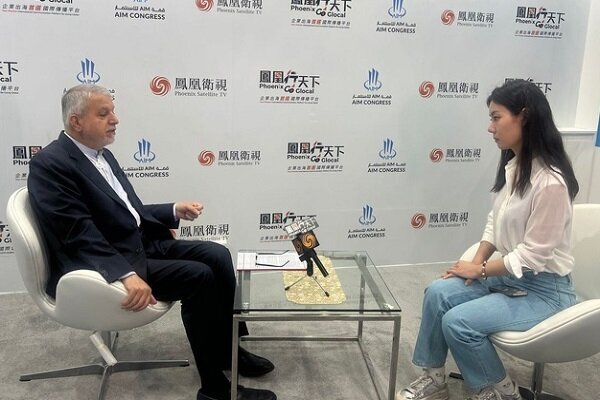Tehran – Iran’s Tourism Minister highlighted the longstanding cultural and economic ties between the Islamic Republic and China, highlighting the potential for strategic partnerships and further cooperation in promoting heritage.
In a recent interview with Phoenixtv News in the UAE in 2025, Seyed Reza Salehi-Amiri reflected the rich history of Iran-China relations, which described the ancient Silk Road as a symbol of deep cultural, economic and civilized connections between the two countries.
He noted that these interactions continue to shape the future of Asian cultural diplomacy for centuries. He specifically pointed out recent strategic agreements between the two countries, including a 25-year cooperation agreement, as a new chapter in their collaboration.
Despite significant economic relations advances as China is Iran’s biggest trading partner, Salehiamiri highlighted the great potential for expanding culture, tourism and investment exchanges. He emphasized the importance of advancing cooperation in areas such as language education, collaborative media production, cultural exhibitions, artist exchanges, and the restoration of historical sites.
The minister also pointed to growing cross-border partnerships between Iran, Central Asian countries and China to revive the Silk Road legacy. He emphasized that developing shared tourism routes, investing in infrastructure, and attracting international tourists, especially from China, are important priorities for both countries.
Elsewhere in his remarks, Salehi-Amiri highlighted the role of UNESCO in supporting Asian joint heritage projects, calling for investment in cultural projects with a non-Western approach. He has identified China, Russia and Central Asian countries as key potential partners in these initiatives.
As part of the ongoing push for deeper cultural engagement, the Minister discussed the growing importance of digital tourism, including the use of virtual reality and online tours as a cost-effective means to broaden the tourism experience.
He also mentioned plans to work with China’s CCTV News Agency on producing joint promotional content, leading Chinese documentary filmmakers to Iran and expanding the presence of Iran tourism on Chinese media platforms, including the “visit Iran” website.
Furthermore, he highlighted the best use of social media and the influential Chinese figures for cultural marketing and working with Asian cultural funds to strengthen relations between the two countries.
He concluded by stating that the “New Silk Road” represents not only a route of trade and commerce, but also a path for dialogue between civilizations and a revival of shared cultural identity.
morning

